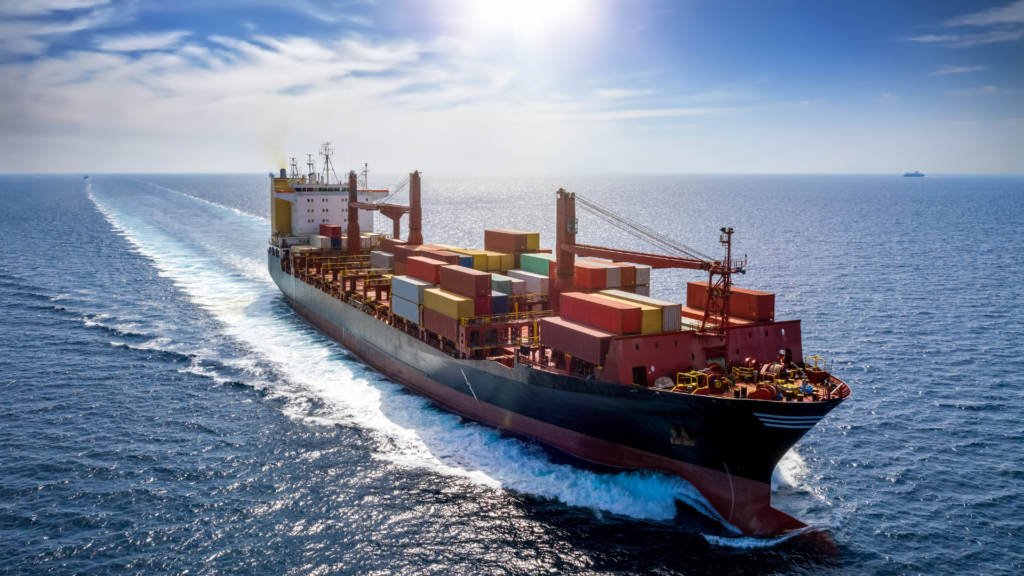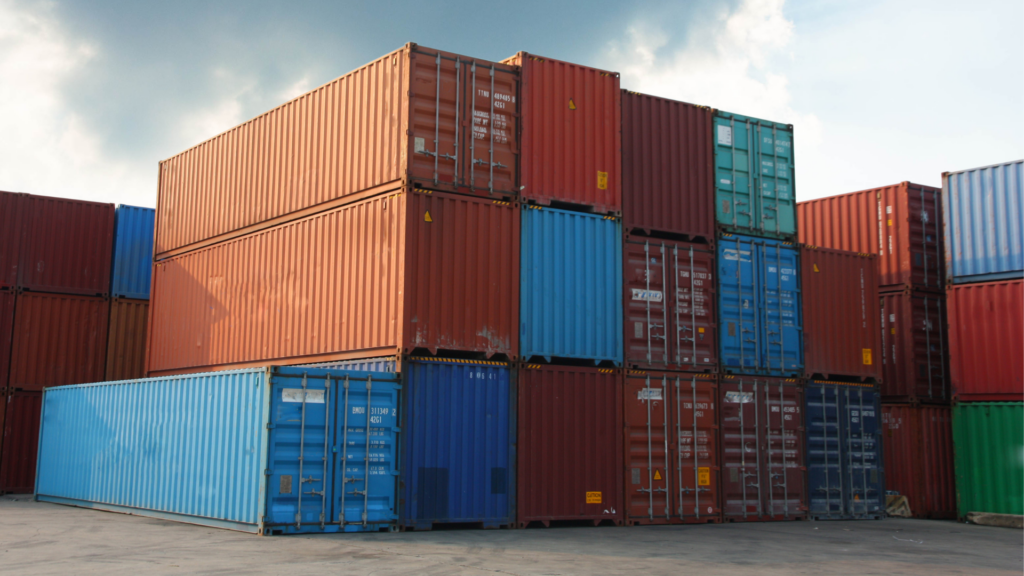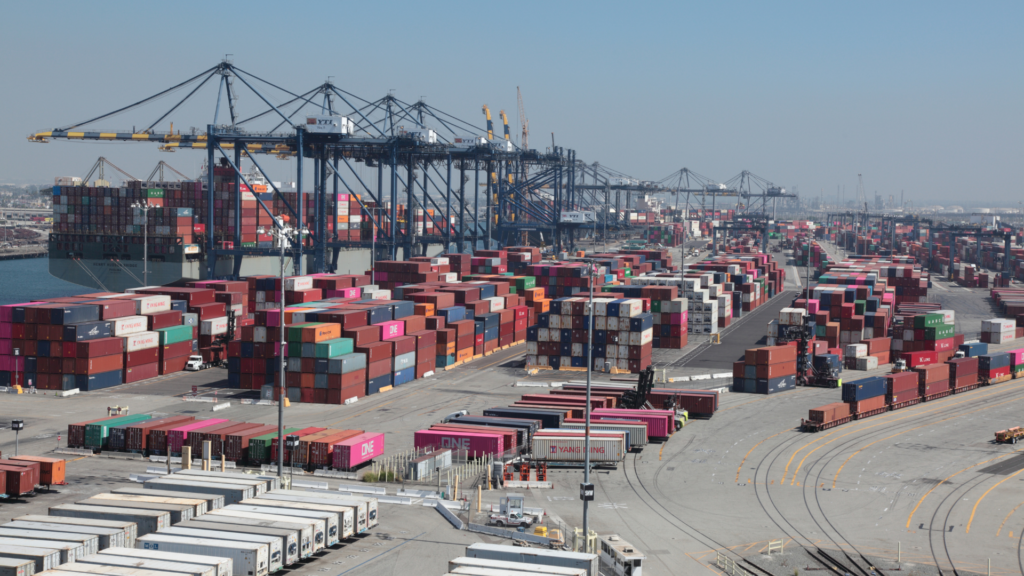H2 Rebound, Antitrust Issues, and LA-LB Disruptions.
Your weekly All-Ways round-up of supply chain news.
On the Rise
Mediterranean Shipping Co. has announced that it’ll be adding more vessels and other equipment as it prepares for a rebound in the second half of the year. Other major US-based forwarders are also seeing an uptick in US import demand. This could push prices upward.
“I see, as many of my colleagues see, in the second half of the year there will be an uptick in cargo,” said MSC Executive Vice President Allen Clifford at the Coalition of New England Companies for Trade (CONECT) spring conference. “The uptick in cargo will not equal what it was in 2021 and 2022. Conversely, it’s not going to be what it is right now.”
“We’re preparing for [a rebound] with our vessels, chassis, containers, and everything else,” Clifford said.
With the new influx of vessels being infused into the market, carriers are able to demolish older vessels and deploy vessels to new trade lanes.
Because of the heavy utilization over the last two years, a lot of vessels will need to be sent to dry dock. “A lot of ships ran hard during the pandemic,” Brian Bourke, chief commercial officer for Seko Logistics said. “There are a lot of legitimate reasons that vessels will be pulled from supply.”
Bourke believes that a lot of shippers will resume ordering from overseas. Especially because of consumers' shift to services, many retailers are planning on launching new products to lure customers back to their stores.
“All of the talk of inflation, recession, and downturn in demand is baked into forecasts,” Bourke said. “All indications are that demand for shipping can only go up.”
Once ocean carriers see a climb in demand, prices will likely increase. Locking in long-term rates is a good way to avoid potential general rate increases.
“We’re touching the floor and it may be possible that we have hit the floor,” Bourke said. “If demand returns, buckle up as it could be a wild ride.”
Shaking the Structure
Operating in alliances or vessel sharing is about to get harder if the new legislation passes which will strip carriers of antitrust immunity. This would change the whole structure of the shipping industry.
Some believe that ocean carriers were engaged in collusion and jacked up the prices unnecessarily while others argue that it was merely because demand exceeded supply.
Ebb and Flow
A few factors are proven to have contributed to the rise in prices -
➡️ Inflation
➡️ Surge in demand
➡️ Vessel capacity removed from the market
➡️ Ships stuck at berth because of congested seaports
But when conditions eased up, the prices collapsed.
“While prices have risen for ocean-borne shipping, this is largely a figment of simple supply and demand economics as cargo volumes have hit unprecedented levels during the pandemic,” president of the AFL-CIO Maritime Trades Department, Greg Regen, said in a letter to the Senate opposing revocation of antitrust immunity last year. “It is not accurate to suggest that the ocean carriers have engaged in price fixing, or that agreements between carrier alliances include rate-setting schemes that would result in price increases.”
The loss of antitrust immunity might mean a loss for many carriers, especially the smaller ones. To avoid legal issues, carriers will likely withdraw from alliances and vessel-sharing agreements which would result in smaller carriers being forced to merge with larger ones as they won’t be able to compete.
Really, No Data
Here’s the thing - if collusion had occurred, the FMC would have the data to back it. But they don’t…
In the Fact Finding 29 study focusing on the impact of COVID-19 on containerized supply chains released last May, the FMC said that the trans-Pacific trade “is not concentrated, and the increased rates in that market are the result of an extreme spike of consumer demand … that overwhelmed the supply of ship capacity.”
FMC Chairman Daniel Maffei told the Journal of Commerce’s TPM22 conference last March that the FMC dug thoroughly but still found no evidence of collusion or fixed pricing by ocean carriers.
In the meantime, the Biden administration keeps tightening the legislation.
Job Actions
As contract negotiations between the International Longshore and Warehouse Union (ILWU) and the Pacific Maritime Association (PMA) are soon to reach their one-year mark on May 10, hopes of a resolution seem to be further and further away.
Over the past week, longshore dockworkers at the ports of Los Angeles and Long Beach have continuously taken part in job actions. This time around, members of the ILWU’s Local 13 have been targeting the three automated marine terminals. By red-tagging cargo handling equipment, the equipment is marked unsafe and an inspection is, thereby, required. This action slows down operations for 8 hours to an entire work day.
“Together, these illegal work actions have disrupted activities at some of the largest and most active terminals in the United States, which play a critical role in the movement of cargo to and from markets throughout the nation,” the PMA said in a statement on Thursday.
A coalition of 238 US shippers and transportation interests have been urging the White House to intervene as not only is the lack of progress frustrating but the job actions are disrupting their cargo from moving properly and they are being forced to divert cargo elsewhere.




